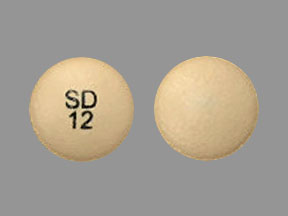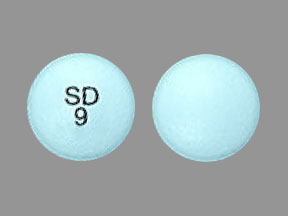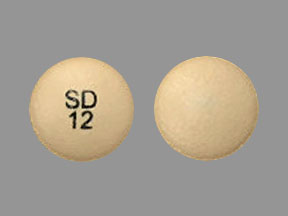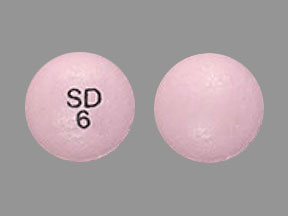
What is Austedo?
Austedo, along with Austedo XR (deutetrabenazine), is utilized to manage chorea (sudden involuntary movements) that are caused by Huntington's Disease (a genetic condition that causes the loss of nerve cells within the brain). Deutetrabenazine is not an effective treatment for Huntington's disease and is not a treatment for other symptoms of the condition.
Austedo is also utilized in adults to treat the symptoms that are a result of tardive dyskinesia (TD), which is an illness of the nervous system. Tardive dyskinesia is characterized by repetitive and uncontrolled muscle movements, mostly in the facial area (chewing lips, smacking the lip, or frowning) and tongue movements, blinking, or eye movements.
Austedo is part of a class of medicines known as vesicular monoamine transporter 2 (VMAT2) inhibitors. It affects the function of some chemical substances found in the brain, which influence muscles and nerves.Austedo can be taken two times a day. Austedo is taken twice daily, and Austedo XR (an extended-release tablet) is taken daily.
Motor function, or movement of the body, is controlled by brain neurons (neurons), which communicate with one another by transmitting chemical messages (neurotransmitters) between nerve cells. the next nerve cell.When there are movement disorders, such as tardive dyskinesia and Huntington's disease, there may be issues in this system. By cutting down on the amount of chemical messengers between nerve cells, you can stop the non-controlled motions.A protein called VMAT2 determines the amount of chemical messenger stored in nerve cells and how much of it is released. The VMAT2 inhibitors inhibit VMAT2 so that there are fewer neurotransmitters in the brain, which reduces undesirable body movements.
Warnings
You shouldn't make use of Austedo tablets or extended-release tablets if you have liver disease that is not treated, are depressed, or are contemplating suicide.Do not take this medication if you've used Reserpine (Serpalan and Renese R) within the last 20 days. Also, have you taken any MAO inhibitor (isocarboxazid rasagiline, linezolid selegiline, etc.) within the last 14 days?
Be aware of shifts in mood, feelings, or thoughts. Inform your doctor if you notice any changes or more severe symptoms.Certain people are prone to thoughts of suicide when taking Austedo.
Tell your doctor right away if there are rapid fluctuations in your mood and behaviour or thoughts of suicide.
Your doctor must monitor your progress while you're using Austedo.
Before You Take This Drug
You should not take Austedo if you have an allergy to deutetrabenazine. Also, if you are:
-
Untreated depression that is not treated or controlled;
-
Thoughts of suicide or harming yourself;
-
If you've recently been taking the medications tetrabenazine and valbenazine or
-
The liver condition.
Do not take Austedo if you've previously used Reserpine within the past 20 days or if you've used an MAO inhibitor within the last 14 days. A potentially dangerous interaction between drugs could occur. MAO inhibitors include isocarboxazid, linezolid, methylene blue injection, the phenelzine compound, and the tranylcypromine compound.
To ensure that Austedo is safe for you, inform your doctor if you've ever experienced:
-
Depressive, anxious, nervous, or agitated;
-
Psychosis, also known as schizophrenia;
-
Suicidal thoughts, actions, or thoughts;
-
Breast cancer;
-
A heart rhythm disorder
-
Long QT syndrome (in either you or a relative);
-
An electrolyte imbalance (such as low levels of magnesium or potassium)
-
Liver disease.
People suffering from Huntington's disease could be more susceptible to suicidal thoughts and behaviors. The use of Austedo can raise the risk. However, the advantages of taking this drug (improvements in everyday living) could outweigh any suicide dangers.
The use of Austedo can cause symptoms that are similar to those of Parkinson's disease (resting tremor, rigid muscles, slow movement, and balance issues, as well as walking). Talk to your doctor about the risk.Your physician will monitor your performance frequently. Your family members or caregivers must also be aware of any sudden change in the way you behave.Inform your doctor if you are breastfeeding or pregnant.
How to Take Austedo?
Take Austedo as directed by your physician. Follow the directions on the prescription label and go through all medication guides and instruction sheets. Your doctor may modify your dosage.If you're switching from another similar medication, tetrabenazine. Take your first dose of Austedo a day after your last dose of tetrabenazine.Austedo is typically taken 1 or 2 times per day, either with or without food, and with a full glass of water.
Take the tablet in its entirety and don't chew, crush, or even break it. Consult your physician if you are having difficulty swallowing the tablet completely.There may be medical tests to determine the function of your heart using an electrocardiograph, also known as an ECG (sometimes known as the EKG).Don't stop taking the medicine without consulting your doctor. If you stop taking Austedo for more than one week, don't begin taking it again without the guidance of your doctor.Storage at room temperature, far from heat and moisture. Place the medicine in the original container along with the container or package of preservative that absorbs moisture.
Details On Dosage
Usual Adult Dose for Huntington Disease:
Initial Dose: 6 mg orally every day, once
Maintenance Dose: You can increase the dose by small doses, ranging from 6 mg per day to weekly intervals.Maximum Dose: 48 mg/day, in divided doses.
Use: For chores that are a result of Huntington's disease.
Usual Adult Dose for Tardive Dyskinesia:
Initial Dose: 6 mg taken orally two times per day.
Maintenance Dose: Increase dose steps of up to 6 mg/day in weekly intervals.
Maximum Dose: 48 mg/day in divided doses Use: To treat tardive dyskinesia.
Comments:
Decide the dosage for each patient based on the reduction in tardive dyskinesia and tolerance.
Take daily doses totaling 12 mg or greater in 2 divided doses.
May stop this medication without tapering.
Re-titrate dosage when you resume the drug after a break in therapy that is longer than one week; then resume treatment at the dose of maintenance previously used without titration when the interruption in treatment is not more than one week.
For patients who are at risk of QT extension, check the QT interval prior to and after increasing the dosage to more than 24 mg daily.
What Happens If I Miss a Dose?
Do not take the medicine for as long as you can. However, avoid any missed doses if you are nearing the time to take the next dose. Don't take two doses at a time.
What Happens If I Overdose?
For medical emergencies, seek emergency medical attention or contact the Poison Help line toll-free at 1-800-222-1222.
Overdose symptoms can include involuntary muscle movements, tremors or rapid eyes, nausea, vomiting, diarrhea, sweating, flushing, extreme sleepiness, and hallucinations. Other symptoms include confusion, hallucinations, or feeling lightheaded.
What Should be Avoided?
Avoid driving or engaging in hazardous activities until you are aware of what this medication will do to you.
The effects of dizziness and drowsiness could cause falls, accidents and even severe injuries.
Consuming alcohol while taking this medication may cause unwanted side effects.
Side Effects Of Austedo
See a doctor immediately in the event that you exhibit symptoms of an allergy reaction with Austedo, such as difficulty breathing, hives, and swelling of your lips, face, and tongue.
There are people who think about suicide when taking Austedo. Be attentive to changes in mood or signs. Family members or caregivers must also be aware of abrupt changes in your behavior.A few of the side effects can be indicators that your Huntington's condition is getting worse. Your physician will examine your progress regularly.
Deutetrabenazine may cause serious side effects. Contact your physician immediately in the event of:
-
Rapid or pounding heartbeats itching in your chest, breathlessness, and dizziness that is sudden (like you're about to pass out);
-
Intense restlessness or agitation
-
Tremors, shaking;
-
Muscle stiffness;
-
Issues with balance or coordination problems;
-
Serious nervous system response: extremely hard (rigid) muscles with an excessive fever, sweating, disorientation, rapid or irregular heartbeats, tremors, or tremors.
It's as if you're about to pass out.
Common Austedo side effects can include:
-
Drowsiness;
-
Tiredness;
-
Dry mouth;
-
Runny or stuffy nose; sore throat;
-
Sleep problems (insomnia);
-
Diarrhea.
This isn't a complete list of possible side effects, and others could happen. Consult your physician for advice regarding medical adverse effects.
If you have any concerns, report them to the FDA by calling 1-800-FDA-1088.
Interaction With Other Drugs
Austedo may cause serious heart issues. The risk of developing heart problems is greater if you are also taking various other medications to treat asthma, infections, and heart conditions such as high blood pressure, mental illness, depression, malaria, cancer, or HIV.
Utilizing Austedo in conjunction with other drugs that cause you to become drowsy could cause more of this. Talk to your doctor prior to using opioids, sleeping pills, a muscle relaxer, or medication to treat anxiety or seizures.
A variety of drugs could be incompatible with deutetrabenazine.
These include prescription as well as over-the counter medicines, vitamins and natural products.
There aren't any interactions listed in this article.
Discuss with your physician any other medication you use.






